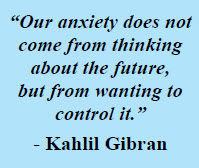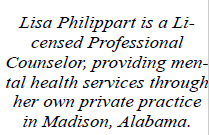 By: Lisa Philippart
By: Lisa Philippart
Do you often find yourself waking up with anxiety? If so, you are not alone. Morning anxiety is one of the more common forms of anxiety. Unfortunately, many people find it hard to deal with or even talk about because there’s no obvious cause or trigger. “I’m anxious the minute I wake up” is the way it’s usually described. The good news is that waking up anxious does not have to be a mystery. Not only are there reasons, more importantly, there are very good ways to stop the cycle. In this article, we will look at how morning anxiety works, and in my next article we will examine some practical tips to stop this habit.
Morning anxiety is when you feel anxious or afraid immediately after waking up from sleep. For many people, it’s as if they were anxious in their sleep and simply woke up into that anxiety. Typically, morning anxiety lasts while you are still in bed but tends to decrease quickly once you get up and start your day. Common signs or symptoms of morning anxiety include nervousness, fear, or dread. You may be able to identify a sense of impending doom without knowing the cause. When you first wake up, you may experience a flood of worry or negative thinking. These thoughts are usually about the immediate future (things you have to do that day) but may include regrets over past decisions or actions. There may even be physical manifestations of morning anxiety such as muscle tension, restlessness, or stomach upset. Once you’re feeling worried, it’s very difficult to go back to sleep. Occasionally, morning anxiety gets to very high levels and can lead to panic attacks. This happens when there is a lot of worry in combination with the bodily symptoms.
 One of the most frustrating parts of morning anxiety is that there isn’t usually an obvious cause or trigger. Here is the critical idea you need to understand: There’s a big difference between the initial cause of morning anxiety and the maintaining cause. Any number of factors can cause morning anxiety initially: a period of high stress, insomnia, relationship conflict, physical illness, or medical issues. But there is often one thing that maintains morning anxiety and keeps it going — the habit of worry. Here’s how it goes: In the beginning, some external issue causes a period of morning anxiety. For example, maybe you had a bad case of the flu for a week. It would make sense that you might start waking up and immediately worrying about how you are going to feel that day. You then get into the habit of worrying about waking up anxious. The problem is that when you get in the habit of looking for signs of anxiety first thing in the morning, it quickly turns into a self-fulfilling prophecy, because you are training your brain to worry as soon as you wake up. To sum up: Many things can cause morning anxiety initially, but it’s worrying about being anxious that keeps you waking up with anxiety.
One of the most frustrating parts of morning anxiety is that there isn’t usually an obvious cause or trigger. Here is the critical idea you need to understand: There’s a big difference between the initial cause of morning anxiety and the maintaining cause. Any number of factors can cause morning anxiety initially: a period of high stress, insomnia, relationship conflict, physical illness, or medical issues. But there is often one thing that maintains morning anxiety and keeps it going — the habit of worry. Here’s how it goes: In the beginning, some external issue causes a period of morning anxiety. For example, maybe you had a bad case of the flu for a week. It would make sense that you might start waking up and immediately worrying about how you are going to feel that day. You then get into the habit of worrying about waking up anxious. The problem is that when you get in the habit of looking for signs of anxiety first thing in the morning, it quickly turns into a self-fulfilling prophecy, because you are training your brain to worry as soon as you wake up. To sum up: Many things can cause morning anxiety initially, but it’s worrying about being anxious that keeps you waking up with anxiety.
 One of the most painful parts of waking up with anxiety is how lonely and isolating it feels to have this major struggle you deal with that no one else seems to understand. Is it possible to stop waking up with anxiety? Absolutely. The key idea is that morning anxiety is a habit. This means that it will take some time, effort, and a little patience if you want to break it. Join me in my next article to discover tips and strategies to stop waking up with anxiety.
One of the most painful parts of waking up with anxiety is how lonely and isolating it feels to have this major struggle you deal with that no one else seems to understand. Is it possible to stop waking up with anxiety? Absolutely. The key idea is that morning anxiety is a habit. This means that it will take some time, effort, and a little patience if you want to break it. Join me in my next article to discover tips and strategies to stop waking up with anxiety.
By: Lisa Philippart







